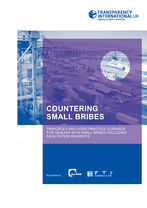Description
GUIDE TO GOING GLOBAL • EMPLOYMENT
ABOUT THE EMPLOYMENT GROUP
DLA Piper’s Employment group is a market-leading global practice with a strong reputation for delivering solutions-based
advice and supporting clients in the day-to-day management of their people legal issues and risk. It includes over 300
specialist lawyers working globally, on a strategic and operational level, on both contentious and non-contentious matters
across the private and public sectors. The group advises on all areas of employment, including trade union and employee
relations, discrimination and diversity management, global mobility and data privacy. We also advise on the legal, tax
and regulatory aspects of remuneration, employee share incentives and other benefits, and we assist clients generally in
designing and delivering their reward strategies.
Our Pension lawyers cover every aspect of pension provision, including the creation, operation, regulation and
restructuring of all types of pension funds in the private and public sectors, as well as the management of pension disputes.
Chambers Global demonstrates our continued success, having been ranked tier 1 in the Employment category for 2010,
2011, 2012, 2013 and 2014.
“Highlighted for its widespread international presence as well as the consistently excellent quality of its advice on
the employment aspects of global transactions.”
Chambers Global 2014
This publication is a general over view and discussion of the subjects dealt with and is up to date as of April 1, 2014.
It should not be used as a substitute for taking legal advice in any specific situation. DLA Piper or its Employment Group accepts no responsibility for any action taken or not taken in reliance on it. If you have finished with this document, please pass it on to other interested parties or recycle it; thank you. www.dlapiper.com DLA Piper is a global law firm operating through various separate and distinct legal entities. Further details of these entities can be found at www.dlapiper.com. A list of offices can be found at www.dlapiper.com. Please note that as a foreign law firm, and not with standing the fact that we have offices in Shanghai and Beijing respectively, DLA Piper UK LLP (like all other foreign law firms with offices in the PRC) are not permitted under existing PRC law to advise on the laws of the PRC.
In view of this, this publication would, insofar as the laws and regulations of the PRC are concerned, necessarily be based on our own research, experience and the advice of our correspondents in the PRC. DLA Piper Singapore Pte. Ltd. is a foreign law practice, which means that we can only provide foreign law legal services and are not in general authorized under Singapore laws and regulations to advise on Singapore Law.
Where advice on Singapore Law is required we can recommend a suitable Singaporean law firm to provide the required Singapore legal advice separately. Copyright © 2015 DLA Piper. All rights reserved. | APR15 | 14362 289 .
It should not be used as a substitute for taking legal advice in any specific situation. DLA Piper or its Employment Group accepts no responsibility for any action taken or not taken in reliance on it. If you have finished with this document, please pass it on to other interested parties or recycle it; thank you. www.dlapiper.com DLA Piper is a global law firm operating through various separate and distinct legal entities. Further details of these entities can be found at www.dlapiper.com. A list of offices can be found at www.dlapiper.com. Please note that as a foreign law firm, and not with standing the fact that we have offices in Shanghai and Beijing respectively, DLA Piper UK LLP (like all other foreign law firms with offices in the PRC) are not permitted under existing PRC law to advise on the laws of the PRC.
In view of this, this publication would, insofar as the laws and regulations of the PRC are concerned, necessarily be based on our own research, experience and the advice of our correspondents in the PRC. DLA Piper Singapore Pte. Ltd. is a foreign law practice, which means that we can only provide foreign law legal services and are not in general authorized under Singapore laws and regulations to advise on Singapore Law.
Where advice on Singapore Law is required we can recommend a suitable Singaporean law firm to provide the required Singapore legal advice separately. Copyright © 2015 DLA Piper. All rights reserved. | APR15 | 14362 289 .









